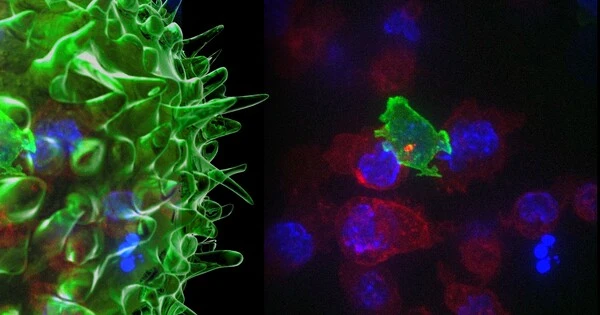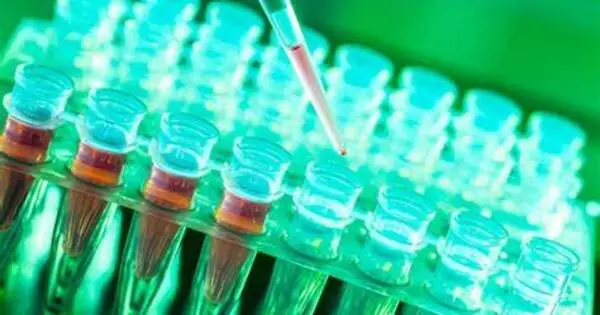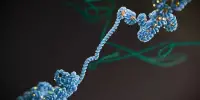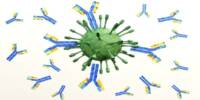Researchers at The University of Texas at El Paso have discovered a novel pharmaceutical chemical that effectively kills leukemia and lymphoma cancer cells, potentially paving the path for new types of treatment.
Renato Aguilera, Ph.D., a professor in the Department of Biological Sciences, is the primary investigator in the study that discovered the promising molecule, thiophene F-8. His team’s findings were just published in the scientific journal PLOS ONE.
“The main goal of my research is to discover new anticancer drugs that can eventually treat distinct cancer types,” Aguilera explained. “This research not only had amazing results, it also led to the training of five Ph.D. students who are now working as postdoctoral fellows in research laboratories across the nation.”
Engaging in such a groundbreaking discovery has been truly fulfilling. The compound’s potential to work in conjunction with existing therapies could be life-changing for leukemia and lymphoma patients.
Renato Aguilera
Leukemia is a cancer of the blood cells, whereas lymphoma is an immune-related malignancy. As part of their investigation into new cancer treatments, Aguilera’s lab analyzed chemical compounds to see how they affected different forms of cancer. According to Aguilera, pharmaceutical corporations produce millions of chemicals, yet the full range of their use is frequently obscure or unknown. Some of these corporations sell the created chemicals as chemical libraries, which researchers like Aguilera can then use to identify the compounds’ specific effects on human cells.
“The hardest part of this kind of research is figuring out what exactly a drug does,” said Aguilera, who also directs the Research Infrastructure Core of UTEP’s Border Biomedical Research Center.

As part of the project, the UTEP team tested 1,300 different compounds on cultures of human cancer cells. Thiophene F-8 was very successful at inducing programmed cell death in the leukemia and lymphoma cells, essentially sending a message to the cells causing them to kill themselves and inhibiting the growth of new cancer cells.
Mia Swain, Ph.D., discovered and researched thiophene F-8 while a doctoral student at UTEP. Swain received his doctorate in biological sciences from UTEP in December 2022 and is now working as a postdoctoral scholar at Texas Tech University Health Sciences Center El Paso.
“Engaging in such a groundbreaking discovery has been truly fulfilling,” he remarked. “The compound’s potential to work in conjunction with existing therapies could be life-changing for leukemia and lymphoma patients.”
The UTEP team will continue to investigate the efficacy of Thiophene F-8. If the medicine passes further testing, Aguilera said, pharmaceutical companies may one day conduct clinical trials to establish the compound’s effect on humans.
















